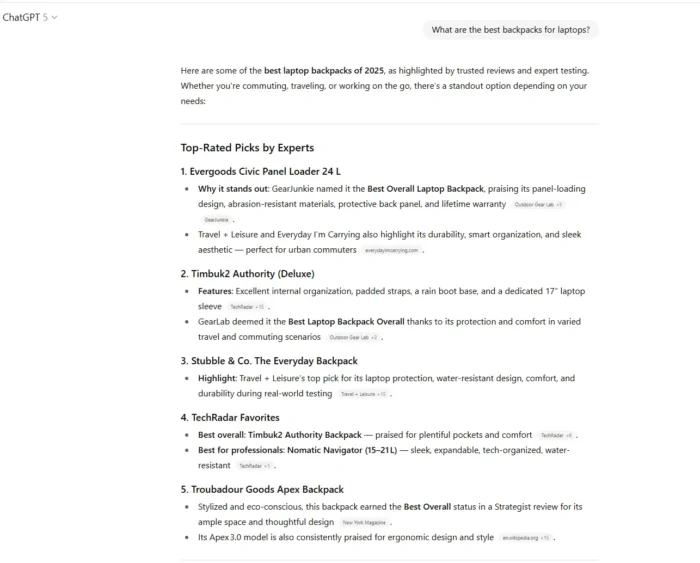A Compressed Guide To Selling On Amazon by Two Second-Generation Entrepreneurs
Thinking of taking your small side hustle to the next level by selling on Amazon? Well, you’re on the right track, as thousands of sellers leverage Amazon as a gateway to a global consumer market. Each year, billions of...

Thinking of taking your small side hustle to the next level by selling on Amazon? Well, you’re on the right track, as thousands of sellers leverage Amazon as a gateway to a global consumer market.
Each year, billions of products and consumer goods are sold and purchased through Amazon. In fact, last year alone, American-based sellers sold more than 4.1 billion items to customers across the world, averaging more than $230,000 in sales per seller.
Clearly, there’s money to be made online. However, for many entrepreneurs and sellers starting out, getting their foot in the door is often met with unforeseen challenges and obstacles.
Fortunately, many experienced sellers have already gone through the process of selling on Amazon and have picked up a few things along the process which they can now share with someone like you ready to take your business to the next frontier.
An Entrepreneur’s Guide to Selling on Amazon
Starting a business can be quite challenging. Although in today’s technologically-driven world, where we are constantly connected to the internet, and consumer buying trends have shifted more towards online shopping, building a digital store on Amazon can be effortless with the proper guidance.
Building a brand reputation, and continuing their father’s legacy, Dusty and Peter McMullin of Sibu Sea Berry Therapy, a specialty supplement and functional food company are now hoping to advocate for the widespread adoption of Sea Buckthorn Oil, after recently launching a new specialty natural Omega-7 supplement.
More than this, they’ve noticed that by helping customers understand the importance of supporting companies that are more transparent and authoritative, consumers will often become more informed about the products and services they pay for while having access to better quality items and customer service.
Selling on Amazon means that brands can establish a more dynamic online reputation, tapping into new markets, and leveraging different opportunities while scaling their business.
Ready to sell on Amazon? Well, let’s hear from the experts on how novice entrepreneurs can get started.
Create an Amazon Business Plan
Peter advises new sellers and entrepreneurs that the first step to selling on Amazon is to create a business plan that highlights all your objectives and forward-looking goals.
“Selling on a platform such as Amazon doesn’t come without doing your homework first. Be sure that you have a well-detailed business plan, and budget, that allows you the opportunity to optimize your sales and provides you with the flexibility to make changes as you scale.”
Peter is President of Sibu Sea Berry Therapy, a company that his father, Bruce McMullin founded in 2004.
Your business plan should include things such as market research; a customer persona; a budget to pay for monthly subscriptions and transaction fees; competitor analysis; types of products you’re going to sell; and other relevant business activities.
Conduct Thorough Product and Market Research
There are millions of products available on Amazon, in fact, some statistics estimate that there are more than 350 million products cataloged on Amazon. While more than enough people are willing to buy all of these various products, keep in mind that you are directly competing with other existing brands and companies that already have an established presence and clientele.
Conducting product research helps you find similar products to yours, and allows you the chance to make adjustments or improvements. Next, you will need to research your potential market, to see whether or not there’s a need for another product such as yours.
Dusty, Vice President of Operations at Sibu says, “These are two critical steps any entrepreneur shouldn’t overlook. While you may already have a business up and running and have seen an increase in product demand from nearby customers, knowing what the marketplace looks like will help you navigate certain challenges more effectively.”
Conduct Supplier and Inventory Assessment
If you’re planning on working with a supplier or wholesaler, make the necessary arrangements that will ensure you constantly have access to various supplies, and that there are no delays for your orders.
Similarly, ensure that you have enough inventory to sustain your first few weeks on Amazon. You will need to have enough inventory to meet both the demand from your Amazon buyers and if you have an online store somewhere else.
“Effective inventory management is critical,” tells Dusty. “You don’t want to find yourself having a delay in deliveries, due to a backlog with your supplier, nor do you want to be in a situation where you don’t have enough stock to meet customer demand.”
In a similar vein, you don’t want to have too much stock on hand. Having excess stock, that you’re unable to sell, means that you are operating against a loss, as you will still need to pay your suppliers, and meet other financial obligations.
“Make sure that you have enough stock to last you at least a month. Throughout this time, assess how sales are fluctuating, and place orders based on precise estimates,” says Dusty.
Understand Amazon’s Cost Structure and Subscriptions
By now you’re already aware that Fulfillment by Amazon allows you to set up a seller account with Amazon, allowing them to stock your products, fulfill orders, and provide customer service to clients. However, this does mean you will be required to pay for various fulfillment and management fees, including transactional fees on products.
Before creating an Amazon seller account, be sure to have gone through their account options and the various cost options. Each account is relatively similar, with differences in monthly subscription prices, and transaction fees.
Peter says that although a more expensive account will provide you with more attractive benefits, try and start with something more affordable, at first. “You can always upgrade your seller account, and besides, you will need to calculate these additional fulfillment costs into your sticker price.”
Keep in mind that fees can change depending on the volume of products you require to be stored by Amazon, there are referral fees that can be charged to your account. Make sure that you have a firm understanding of all these involved costs before opening your online store.
Create a Marketing Plan
As we’ve already mentioned, there are thousands of sellers and millions of products available on Amazon. Listing your products isn’t enough, you will need to have a robust marketing strategy that will help direct customers to your products or find innovative ways to make your product stand out against other competitors.
“We’ve learned that by being consistent in all our marketing efforts, customers remember our brand and the type of quality products we sell. More than this, continuing our father’s legacy has also meant that we can build on his knowledge and experience, and provide customers with the service and quality they’ve come to know over the years,” says Peter.
Having a marketing plan becomes more important as your business begins to grow, however, already having a presence on social media or other digital platforms will give you an edge against your competitors.
Read Customer Reviews and Engage
One of the many benefits of Amazon is that customers can leave you reviews on your product, helping to inform other potential clients about their experience with your business and the products you sell.
However, this doesn’t mean that you will always have positive reviews on all of your listings, and you are bound to have a few negative reviews that will make you want to question your abilities and products.
According to Dusty, “One bad review holds more weight than one hundred positive reviews, this is the unfortunate reality. Nonetheless, resolving these grievances is critical to your business, as this will reflect directly on your brand image, and show other potential clients how you deal with a negative review or statement.”
Engagement is an important step in selling on Amazon. Customers want to feel that they are valued and that they are being listened to. Yes, there will be things that you can’t control, however, it’s important to consider how you react to these events, and what strategy you will take to resolve any problems that reflect the type of business you’re trying to build.
Evaluate Progress and Optimize
Finally, be open to making changes by optimizing your value chain. Sure, in the beginning things won’t go as planned, and you will run into several mistakes, but these are all opportunities through which you can make improvements.
“When we first started selling online, we encountered multiple mistakes and pitfalls that landed us in hot water, but this is part of the business process. How you overcome these challenges, and correct these mistakes is all up to you,” says Dusty.
As your business begins to scale, you will realize that some products are more popular than others, which means you can either lower the price or completely remove it from your offering. Maybe you notice that some of your clients live nearby, and that allows you to deliver faster, instead of having them order through Amazon.
Changing, and finding a consistent flow are all part of the process. “You won’t have everything figured out from the very start, it sounds daunting, but you will notice that some things work for your business, and other things only cost you more money than what it generates. Don’t be afraid to make an executive change,” advises Peter.
Wrap Up
Ready to sell on Amazon? Well, you might feel that there is more you can learn, however, the best way to learn is through doing. While it’s advised to always read up as much as you can before putting it into practice, remember that as a business owner, you will need to take risks to tap into new opportunities and establish new ground rules that allow you to make more informed decisions.

 Kass
Kass 











![A Complex Art: Marketing to the Different Funnel Stages [Podcast]](https://cdn.searchenginejournal.com/wp-content/uploads/2021/03/funnel-sej-603d692871529.png)



















